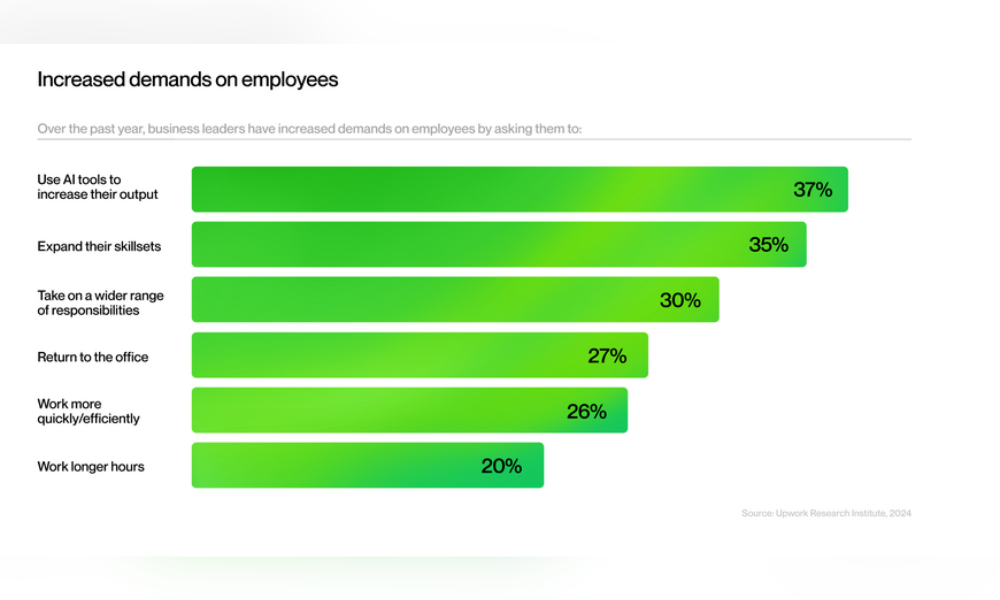'Introducing new technologies into outdated work models and systems is failing to unlock the full expected productivity value of AI'

Despite more and more C-suite businesses investing in generative AI, a new study of workers in the U.S., U.K., Australia and Canada shows that AI may increase the workloads of full-time employees, hampering their productivity and resulting in employee burnout.
The Upwork survey found that 96% of C-suite leaders expect the use of AI tools to increase their company’s overall productivity levels and that 85% of companies are already using AI.
Thirty-nine percent of them are mandating the use of AI tools, while 46% are encouraging their use to ensure productivity.
However, 77% of employees report that these tools have added to their workload, found the Upwork Research Institute study.
AI use means more work, more hassle
Thirty-nine percent (39%) of the surveyed employees said that they spend more time reviewing/moderating AI-generated content, while 21% invest more time learning how to use these tools. Meanwhile, 21% of the respondents reported they are asked to do more work as a direct result of AI.

Interestingly, the Upwork study also showed that almost half – or 47% – of full-time employees who participated in the survey stated that they have no idea how to achieve the productivity gains their employers expect, while 40% feel their company is asking too much of them when it comes to AI.
The survey also noted that 81% of global C-suite leaders acknowledged they have increased demands on their workers in the past year. Because of this, 71% of full-time employees were burned out, and 65% reported struggling with their employer’s demands on their productivity.
There is also a glaring problem of possible employee turnover in the coming days as one in three employees has said that they will likely quit their jobs in the next six months due to burnout or being overworked.
Unlocking expected productivity of AI
It’s time for a change, according to Kelly Monahan, managing director of The Upwork Research Institute.
“Our research shows that introducing new technologies into outdated work models and systems is failing to unlock the full expected productivity value of AI,” she said. “While it's certainly possible for AI to simultaneously boost productivity and improve employee well-being, this outcome will require a fundamental shift in how we organize talent and work.
“To reap the full productivity value of AI, leaders need to create an AI-enhanced work model,” Mohanan furthered.
“This includes leveraging alternative talent pools that are AI-ready, co-creating measures of productivity with their workforces, and developing a deep understanding of and proficiency in implementing a skills-based approach to hiring and talent development. Only then will leaders be able to avoid the risk of losing critical workers and advance their innovation agenda.”
The survey was conducted between April 16 and May 5, 2024 and targeted respondents in the U.S., UK, Australia, and Canada. In total, 2,500 global workers completed the survey, including 1,250 C-suite executives, 625 full-time, salaried employees, and 625 freelancers.




